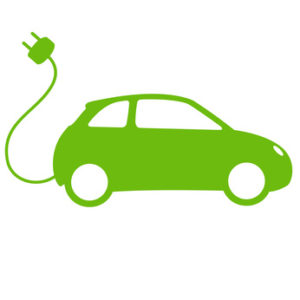However, in the last few years just about every car manufacturer has had an electric car project, if not a prototype or actual saleable model. This week I heard about a fleet of London taxis that run entirely on rechargeable batteries.(Firstly I must point out that I’m simply using the term “London Taxi” for ease, as there has been much uproar about whether the fleet of cars I’m about to talk about are actually official “Cabs” or whether they are just normal family saloon cars being used for a Taxi service. In this instance, it makes no difference. So for simplicity they will be referred to as taxis, as they are in one of the links at the bottom of this blog entry.)
Chinese manufacturers BYD have made 20 vehicles which are being used as a fleet of taxis for Thriev and Green Tomato Cars in London, with a further 50 planned in the next year. Already Nissan, Metrocab and The London Taxi Company have electric vehicles “ready”.
We know that in December two fully electric buses were put on London’s roads, now in the middle of their testing phase to see how viable it is to make all London transport electrified. Buses are a relatively simple solution as they regularly make extended stops during the day to change drivers or refuel, often at a depot or special rest stop. If recharging could be quick, this could be the ideal way to make sure both drivers and vehicles are given regular chances to recharge. There a further group of buses that run on used cooking oil; something that must be in plentiful supply in a city as vast as London.
Taxis, however, pose a more difficult question. Yes, they also take regular stops but rarely for very long. The engine is almost constantly in use and many of them are taken home by their driver at the end of the shift so that it is easier for them to begin a very early shift the next day. But the fact remains that they too must change drivers and be taken to their depot for checks and cleaning. The question, again, is how fast can these things charge? It’s no use if it only does 100 miles on a charge but takes 12hours to recharge, unless firms fancy having a huge stack of batteries on charge so that drivers can drop in, swap batteries and leave.
Boris Johnson has set a target for all new taxis to be zero emission by 2018, and it looks like these cars may have made a step forward. Unfortunately, the current fleet of 20 electric taxis are privately owned and run on a ‘chauffeur’ service, presumably allowing them to stop off and be charged whenever they need to, as they simply don’t make bookings in that time.
Nevertheless, this is a good move on the part of Chinese company BYD and is sure to be challenged by other manufacturers looking to bag a giant contract to make London’s new zero emission electric cabs. Watch this space and look out for the electric logo on your London Taxi sometime soon….


